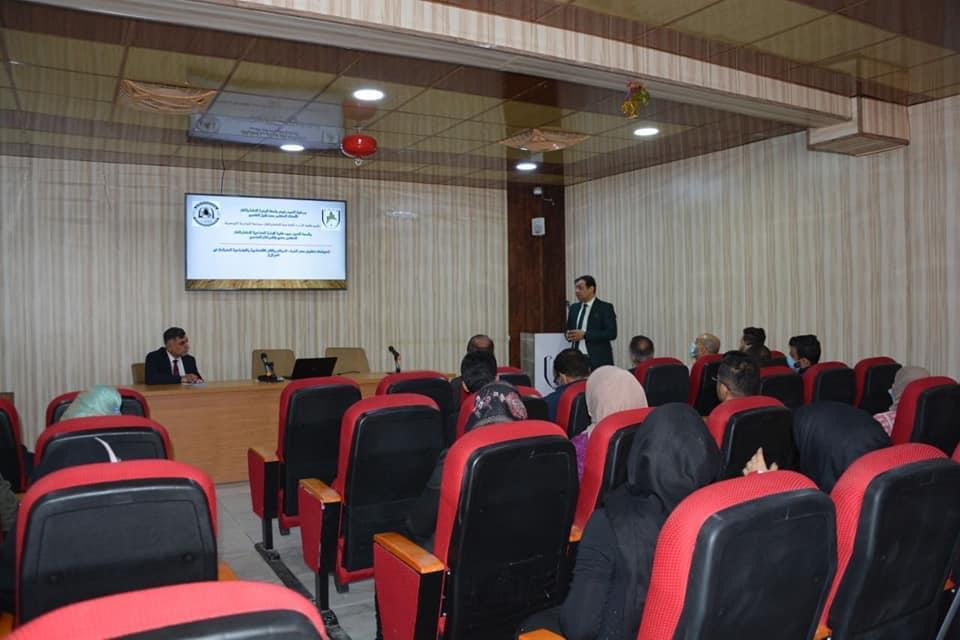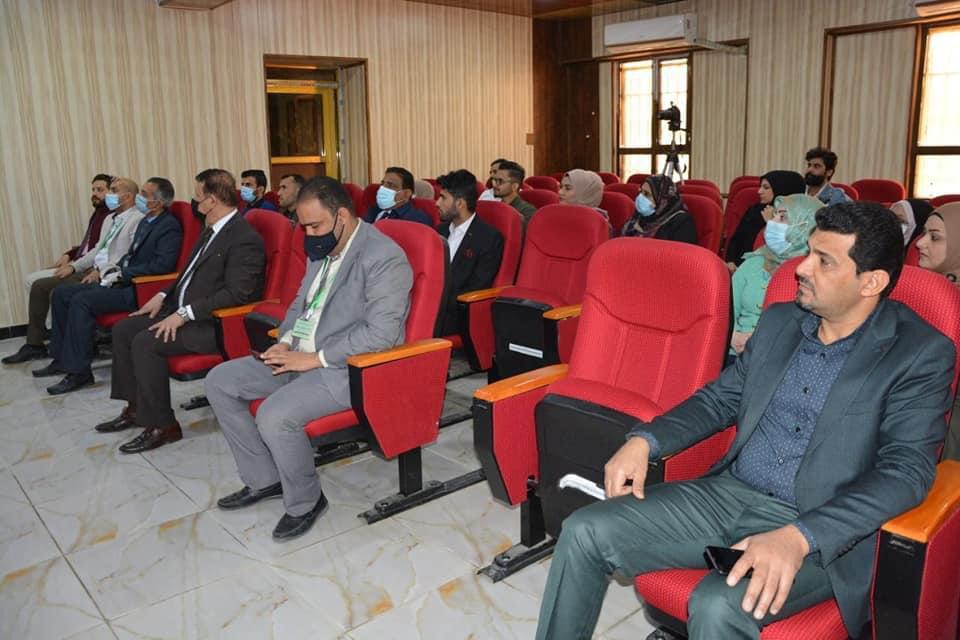The College of Industrial Management for Oil and Gas at Basra University for Oil and Gas held an economic symposium entitled (Policies to reduce the exchange rate: the economic and social motives and impacts expected in Iraq) presented by the Dean of the College of Industrial Management for Oil and Gas, Assistant Professor Dr. Sami Hashem Al-Saadi and the seminar was moderated by the Administrative Assistant Dr. Nassif Jasim Al-Abadi This will take place on Tuesday, the twenty-second of December, at the college’s central conference hall. The researcher dealt with the general features of the modern Iraqi economy, which suffers from deep structural imbalances in its composition, summarized by its dependence on oil as almost the only source in the formation of the gross domestic product, with the absence of the role of other economic sectors such as industry and agriculture in general, and the country's economic exposure to the outside world, and this is a clear indication. In the imbalance of the commodity trade balance and other major factors, which caused a complex crisis whose sides are intertwined, and among the most important results of which is a stifling financial crisis and the successive governments ’reliance on oil revenues mostly only to run macroeconomic affairs without working to diversify the economy base, as well as the weakness of the private sector, active entrepreneurs and bad The investment climate, as well as the economic stagnation, which is the most important feature of the current Iraqi economy and the loss of a large proportion of the oil-produced wealth over the past years. Al-Saadi reviewed the results of the devaluation of the local currency against foreign currencies, which are related to several factors, including the state of the external sector and the impact of the reduction on consumer prices and the impact of The reduction increases economic growth and trade and the effect of the reduction on the Social groups that depend on government support and the effect of the reduction on confidence in the local currency and the effect of the reduction on the state’s general budget. The lecturer also clarified that the effect of devaluation on consumer prices depends on the percentage of imports from domestic consumption. The higher this percentage, the greater the impact of the reduction, which generates inflationary pressures. By producing high prices in general, as is the case in Iraq, as it suffers from limited local production, lack of diversity and reliance mainly on imports, as well as on the availability of local products, as the effect of devaluation decreases whenever local alternatives are available for products that compensate the importer. The level of currency devaluation, if it is significant, will lead to a significant increase in the rate of inflation, especially if other factors do not help to curb inflation. At the end of the seminar, Al-Saadi discussed the most prominent effects that the devaluation will have on social groups that depend on the government, so the reduction will reduce the capacity Purchasing among broad groups of low-income people, and the reduction leads to an increase in government expenditures for support through the public distribution system, or what is called ducks The supply situation and this will lead to several negative effects, including a decrease in the real income of employees and a decrease in the local production of goods and services due to the fact that all the raw materials are imported materials, as well as a decrease in employment in the short term as a result of the closure of many factories and shops and the instability of the local exchange rate, and the symposium witnessed interventions Of specialists and academics who have expressed the seriousness of the situation and the importance of putting in place immediate treatments by the competent authorities.



